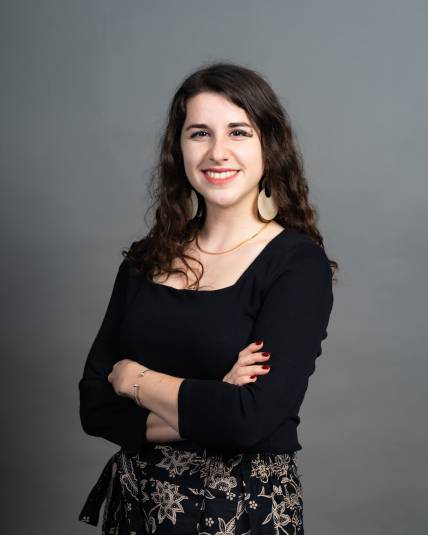Alumni Spotlight: Paula Sevilla Núñez (MUP 2019)

Paula Sevilla Núñez (MUP 2019), housing justice researcher, International Institute for Environment and Developmnet (IIED)
Can you share your journey into affordable housing and housing justice? What initially drew you to this field, and how did your time at NYU Wagner shape your path?
My interest in housing comes from a desire to fight inequality in our societies. I decided to pursue the Masters of Urban Planning at Wagner because I was attracted to the power of cities and the urban landscape to shape the way we experience our society—our interactions with other people and with the institutions that offer us educational, cultural, economic and political opportunities to build a better life. I could see how, depending on policy choices, cities can help improve our lives, or lock us into a vicious cycle of inequalities and exclusion. I came from a background in international relations, so I chose the international development specialization to continue working in global contexts.
At Wagner, I was able to understand how housing was related to different policy tools and processes such as land use planning, financing, and decentralization, among others. Though I didn't focus my studies at Wagner on housing, my capstone did look specifically at housing. My team studied the housing policy context in Uganda, and the research that I conducted for the capstone project continues to help me in my work today as I collaborate with partners on exploring the benefits and challenges of community-led housing, trying different financing schemes for low-income populations, and facilitating housing policy dialogues with governments and civil society. While at Wagner, I also had the opportunity to do an internship with UN-Habitat, the United Nations agency focused on urbanization and cities, and also collaborated with other urban-focused organizations like the NYU Marron Institute of Urban Management, where I was able to apply a lot of what we were learning in the courses.
Your role as a Co-Convener at Hub for Housing Justice focuses on advancing housing justice. What does that look like in your practice? What are you most excited to work on?
I believe that the current housing crisis we are observing in almost every country is a clear manifestation of how the policies and strategies that we have followed have benefited a very select few at the expense of the rest. Access to adequate housing is critical for us to prosper, and live a healthy and fulfilling life. It impacts our educational outcomes, health, economic opportunities, and social networks. But housing is also a profitable investment. When we prioritise the economic value of housing over its social value, and we treat housing as a commodity rather than a right, we entrench inequalities and exacerbate social injustices.
At the International Institute for Environment and Development (IIED) where I am currently based, we propose housing justice as a framework for policies and programs to tackle these inequalities and ensure that the ways we build, provide, and manage housing allow ALL people to flourish. For this, we combine research with policy facilitation and advocacy, and one of the ways we do this is by convening the Hub for Housing Justice, which brings together those advancing housing justice at the local, national and international level, to learn from each other and collaborate more effectively. We produce knowledge on different policy and planning mechanisms to make housing more affordable, accessible, and decent to different populations in different countries. We also work with local partners to highlight what they are already doing—from organizing communities in informal settlements to demand public services to building their own housing through collective financing and building. We also try to bring the housing conversation to the international level, including at conferences organized by the United Nations. My favorite part is when we help facilitate dialogue and exchange across actors, such as national and local government, urban poor federations, women and youth groups, cooperatives, and others, to encourage the creation of more effective policies.
What's one thing you wish you had known as a Wagner student that would have helped in your career?
Wagner has so many resources that are invaluable. I took advantage of the career services, and thanks to their coaching and guidance I landed a job I loved right after graduation. On the other hand, I wish I had spent more time learning from the faculty outside of the classes. Wagner faculty are always conducting really interesting research and have so much knowledge to offer. The good thing is that the Wagner network is very strong, and even years after graduating I continue to have wonderful relationships with faculty members and alumni.
Looking ahead, what broader impact do you hope to achieve through your role at Hub for Housing Justice?
I want to use my work at IIED and through initiatives like the Hub for Housing Justice to demonstrate that the inequality that we are currently experiencing is not inevitable—it is a conscious policy choice. These policy choices are not just making housing unaffordable, they are also eroding democracy. The housing justice work is not just about building homes; it is about building a movement for equity and justice at a time when power is consolidated in the hands of a wealthy few, and those who speak up are being shut down or criminalized. My hope is, therefore to produce evidence of alternative ways of building our societies but also to show how housing is tied to other fundamental crises of our time—from climate, to democracy, to corporate and elite capture - and to support the work of people who are on the frontlines, often risking their own lives to call out social injustices anywhere from the US to Congo.